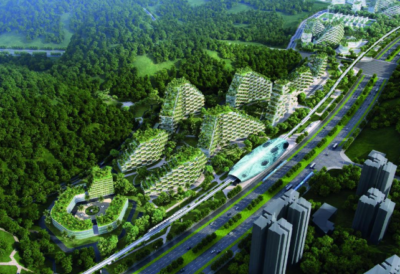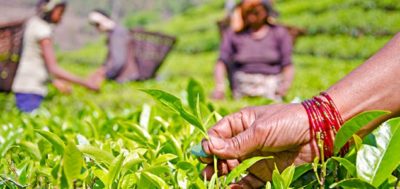China is Building the World’s first Forest City
China is notorious for having trouble with air pollution, but now they are trying to come out with an innovative solution.
Italian architect Stefano Boeri’s colossal ‘forest city’ scheme – a newly built metropolis that will ‘eat’ its own toxic smog with one million plants and 40,000 trees. The idea is to challenge preconceptions that urban density intensifies air pollution, by creating a new blueprint for city design that integrates plants into its construction.
100 different species of plants are planned to grow on balconies and roofs of the city’s skyscrapers, lining 175 hectares along the Liujiang River in Southern China. Once completed, the shrubs will breathe in fine dust from the air, catching and soaking up pollutants from the toxic environment. When the city is fully grown, it will be able to absorb almost 10,000 tons of CO2, 57 tons of pollutants per year and produce approximately 900 tons of oxygen annually.
The new green city in Liuzhou will reportedly host 30,000 people, with hospitals, schools and fast electic rail services all part of the construction.The project was commissioned by the Liuzhou Municipality Urban Planning and will be constructed in the north of Liuzhou along the Liujiang river. The construction of the green-city-in-the-making is currently underway and will be finished by 2020. Occupying 432 acres, the Liuzhou Forest City will be roughly half of the size of the Central Park in New York. There are also plans to fit geothermal and solar energy resources, so the city runs on a green and self-sustainable power source.
Italian architect Boeri, who has previously designed two vertical skyscraper ‘forests’ in Milan, said: “The diffusion of plants, not only in the parks and gardens or along the streets, but also over building facades, will allow the energy self-sufficient city to contribute to improve the air quality (absorbing both CO2 and fine dust of 57 tons per year), to decrease the average air temperature, to create noise barriers and to improve the biodiversity of living species, generating the habitat for birds, insects and small animals that inhabit the Liuzhou territory.”
If successful, the forest city could be a blueprint for other countries where air pollution is an issue.
Source: Standard UK


